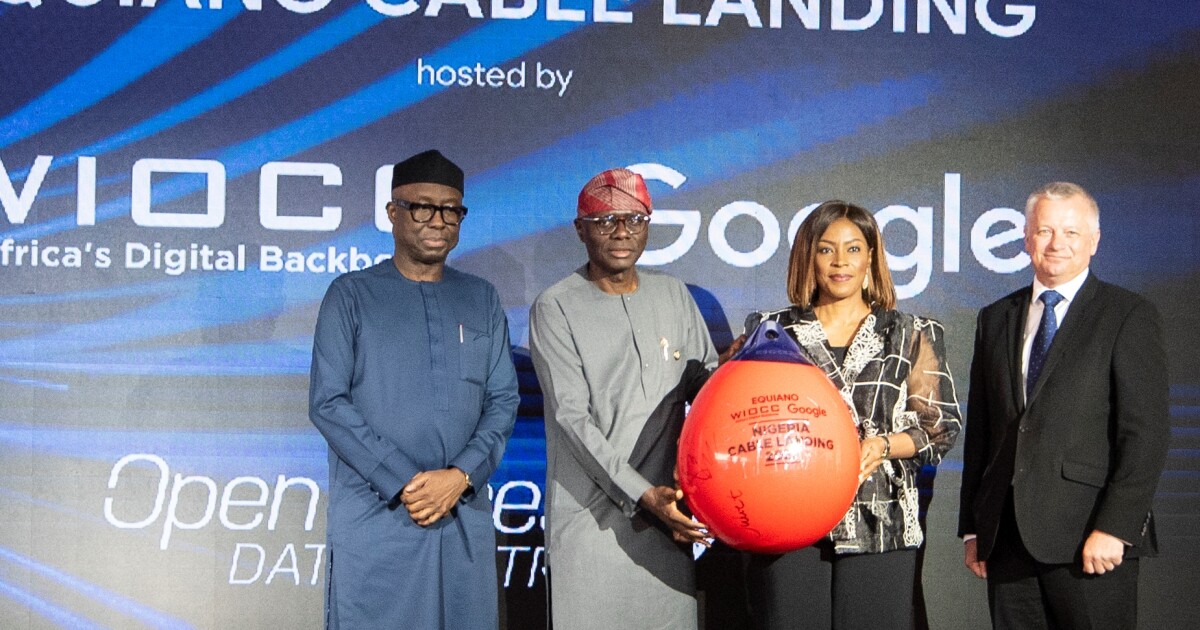Google and its cable landing partner WIOCC have landed the Equiano subsea cable in Lagos, Nigeria.
The cable, named after Nigerian-born writer and abolitionist Olaudah Equiano, will become a critical element in meeting Nigeria’s current and future international connectivity demands and will help support further digital transformation in the West African country, where five startup unicorns have emerged in the past five years.
The Equiano cable will start in Portugal in Western Europe, running more than 12 000 km along the West Coast of Africa, landing in Lomé, Togo; in Lagos, Nigeria; in Swakopmund, Namibia; in Rupert’s Bay, Saint Helena; and in Melkbosstrand, South Africa, establishing a valuable new high-capacity connection between the African continent and Europe.
In March, the Equiano subsea cable made its first landing in Africa in Lomé.
In Nigeria, WIOCC landed the cable directly into the Lagos Open Access Data Centre, where it will be extended to other data centres across Lagos, said WIOCC CEO Chris Wood.
“WIOCC is also deploying a comprehensive, hyperscale national fibre network. The network will go live in phases, starting in June and continuing through to the end of the year. When combined with the Equiano cable, this network will deliver transformational benefits across the country.”
The design capacity of the Equiano subsea cable is about 20 times larger than any other cable currently serving the region and will have a direct impact on connectivity, resulting in faster Internet speeds, reduced Internet prices and improved user experience across Nigeria.
“Google is committed to supporting Africa’s digital transformation and we are excited to see the impact of the landing of Equiano in Nigeria. We have worked with established partners and in-country experts to guarantee that Equiano has the greatest potential effect in Nigeria and throughout Africa,” said Google West Africa director Juliet Ehimuan.
“Equiano is set to make an enduring contribution towards the development of Nigeria’s communications infrastructure and today marks another major step in its development.”
A recent impact assessment study by Africa Practice and Genesis Analytics stated that, once the high-capacity Equiano cable becomes fully operational later this year, it is expected to increase Internet speeds by a factor of six, reduce Internet retail prices by 21% and increase Internet penetration by six percentage points.
It is also expected to boost gross domestic product by $10.1-billion and increase job creation by 1.6-million by 2025, as well as save 2.8-million tonnes a year of carbon dioxide emissions.
While the Nigerian government has also accelerated its digital transformation programmes and initiatives since 2017, which have proven crucial to the success of many industries in the country, particularly within the startup space, studies suggest that faster Internet connections, better user experiences and reduced Internet costs will further accelerate these benefits.
Source : Engineering News





![Call For Applications:Innova [Africa Future of Work and Entrepreneurship] Fellowship 2023 Innova [Africa Future of Work and Entrepreneurship] Fellowship 2023](https://msmeafricaonline.com/wp-content/uploads/2023/07/WhatsApp-Image-2023-07-03-at-8.01.03-AM.jpeg)



